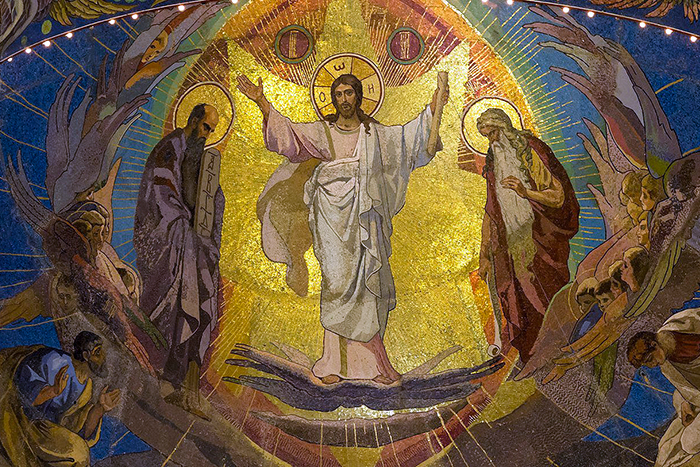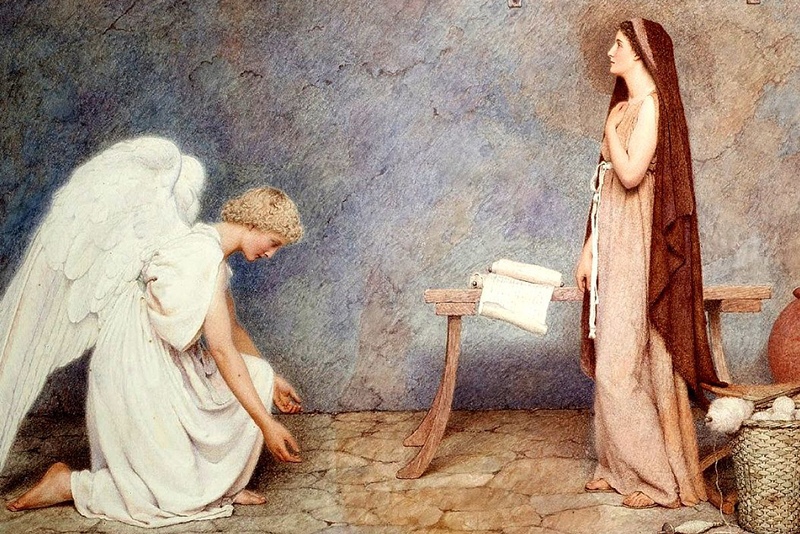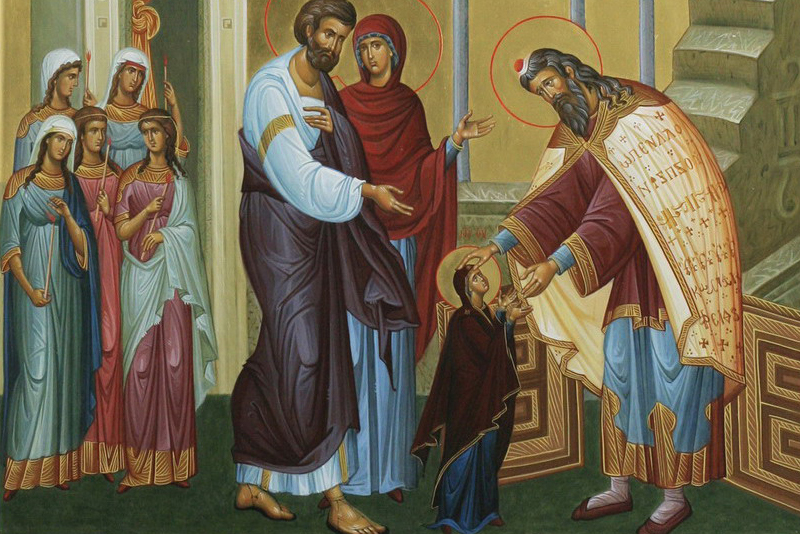
Before His glorious Transfiguration, the Lord spoke to His disciples about His forthcoming suffering on the cross, and about the necessity for everyone to bear his cross. Now, so that the disciples who had been perplexed by the Lord’s statement about the cross, and were to become witnesses of his being mocked and tormented, might not be discouraged by this humiliation of their Teacher, and realize the great mystery of his freely undertaken suffering for the salvation of the world, the Son of God, the Lord Almighty, revealed His glory in the glorious Transfiguration, as the Only Begotten of the Father.
He took three of his disciples. He took Peter to assure him that his testimony to Christ, “You are the Christ, the Son of the living God,” had indeed been revealed to him by his heavenly Father; he took James, who had to suffer for Christ before the rest of the apostles; he took John, as a virgin, and the purest organ of theology, so that he might see the glory of the Son of God and cry out loud: “In the beginning was the Word, and the Word was with God, and the Word was God.”
It was on the magnificent Mount Tabor, when, in the depths of a heart obedient to God the Father, the Lord said, “Lo, I come to do Thy will, O God” (Hebrews 10:7) that Christ was transfigured, “His face shone like the sun, His garments were made white as snow,” and this heavenly light sparkled like a lightning, and grasped the souls of the apostles. They saw Moses and Elijah talking to Christ. They spoke of the coming suffering of the Savior.
The Jews often accused the Lord of breaking the Law given to Moses and of blasphemy, because He called Himself the Son of God, equal to the Father. But on Mount Tabor the untruth of the Jewish scribes and Pharisees is exposed by the apparition of Moses and Elijah. Both Elijah and Moses had mysteriously passed away from earthly life: Elijah had been taken to heaven alive; Moses had died but the place of his burial remained a mystery. To show that the accusation of Christ by the scribes and Pharisees was out of envy and did not stand, Christ brings in Moses and Elijah: Moses, who had given the Law, would not have tolerated a transgressor of the Law, nor would he have served him; and Elijah would not have appeared or obeyed Him who claimed to be the Son of God, and equal to the Father, if it wasn’t true, because Elijah was zealous for the glory of God. The unfair attitude towards the Messiah is made evident; Christ reveals Himself on Mount Tabor as the only begotten Son and Lord of the living and the dead. “He commanded heaven, and brought down Elijah, beckoned to the earth, and raised up Moses.”
It is rightfully stated that “the glory of the Transfiguration represented both the glory of the Resurrection, and the glory in which He will come to judge the living and the dead, and our future transfiguration at His Second and Dreadful Coming”.
We cannot imagine the joy that the three apostles experienced, “seeing their humble Teacher in the magnificent glory, talking to the greatest prophets as if they were his servants.” “Lord, it is good for us to be here”, the apostles exclaimed. How sweet it is! We desire to always remain in this joy, in the radiance of Your light, but… Moses is in the abode of the righteous dead, and Elijah is in heaven. When the Apostle Peter was still speaking with the Savior, expressing his admiration for what he had seen and experienced, “a light cloud dawned on them, and a voice was heard from the cloud, the voice of God the Father: “This is my beloved Son, in whom I am well pleased: Obey Him”.
His Heavenly Father twice declared to the world that Jesus Christ is His beloved Son. He did it during His Baptism, when the public service of the God-Man Jesus Christ began for the salvation of mankind, and during His Transfiguration, when He embarked on His most difficult obedience to the heavenly Father, despised by the world but glorious in the eyes of God.
Therefore, my dear friends, the historical event of the Transfiguration firstly exposes all those who oppose Christ as Messiah, as the Savior of the world. Secondly, it confirms the reality of another world, another life, life after death as we call it. Thirdly, it testifies to the light and joy that await us there. Finally, by taking His disciples to a high mountain, the Lord shows us that he who does not rise above the earthly plane cannot be worthy of divine contemplation. Amen.
Translated by The Catalogue of Good Deeds
Source: https://azbyka.ru/otechnik/Mitrofan_Znosko_Borovskij/slova-i-propovedi/#0_121



